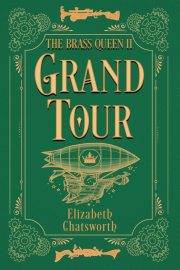How Writing Challenges Made Me a Better Writer
By Rachel Craft
I’ve recently gotten hooked on writing “challenges,” multi-round contests that give participants a creative prompt and a tight deadline to write a short story. Sometimes it’s a week, sometimes it’s as little as 24 hours. If that sounds stressful and even somewhat insane, it is—but it’s also incredibly fun, and a valuable learning experience for writers of all stripes.
Writing challenges have completely reshaped my writing process, helping me produce more stories faster, overcome perfectionism, build confidence in my work, and connect with fellow writers. They’ve also pushed me out of my comfort zone. Instead of my usual children’s stories, I’ve been prompted to write political satire, historical fiction, and even a romcom set in a saltwater fish store. Here’s what I’ve learned from participating in these wacky events.
Stop waiting for inspiration to strike
When I first started writing short stories years ago, inspiration was always the hardest part. I wasted hours upon hours waiting for worthwhile story ideas to fall into my lap. As a result, the stories I produced were few and far between.
During writing challenges, where I had as little as a day to crank out a story, this approach clearly wasn’t going to work. I had to find a way to make inspiration come to me. So I developed what I call an “active brainstorming” process. With the story prompt in mind, I’d open my notebook and start scribbling anything I could think of. Usually, the first few ideas are boring, predictable, even cliched. Once I get those out of the way, the more interesting ones start to appear: upended tropes, genre mashups, and unexpected takes on a theme.
Active brainstorming made an immediate difference in my writing process. My ideas were clearer, more detailed, and more exciting than ever before—and it took far less time to generate them. But an idea alone isn’t enough to carry a whole story. I had to learn how to turn an idea into a plot.
Streamline your writing process
Once I had a killer idea and my story’s general trajectory, I still didn’t know exactly what needed to happen to get from beginning to end—and with the time constraints, I didn’t have the luxury of discovering it as I wrote. So I learned to do something that, until this point, had made my writerly heart quake with fear: outlining.
Over the course of a few writing challenges, I went from being a dedicated (and, let’s face it, not very successful) pantser to outlining every short story before I started drafting. First, I brainstorm possible endings until I know where I want the story to go. Then I brainstorm scenes, keeping in mind things like conflict and fear. What kind of people, places, and events would create the most conflict? What is the character’s greatest fear, and how can I thrust her straight into it?
Once I have a list of possible scenes, I circle the best ones and shape them into a logical plot. Then, outline in hand, I’m ready to write my first draft—and the drafting process goes so much faster with a roadmap to guide me.
Let go of perfection
For me, one of the hardest parts of writing is deciding when a piece is finished and ready to submit. No matter how many rounds of revision I’ve been through, the perfectionist in me can always find something else to tweak. Sometimes I suspect it’s less about perfectionism and more about fear of rejection. As long as I never quite finish a story, it can never be rejected, right?
Writing challenges forced me to let go of perfectionism, fear of failure, and all the other things that usually keep me from saying “It’s done.” They also reframed this last step of the process. Submitting used to be a big, daunting task that loomed like a specter over the rest of my writing process—but in a writing challenge, submitting is actually a triumph. There’s nothing quite like the sense of accomplishment that comes from hitting “submit” as the clock ticks down after 24 hours of frenzied creativity. And even if your story doesn’t win or place in the challenge, you can go on to submit it elsewhere.
Build your community
Another benefit of writing challenges is the communities of writers they produce. Writing a story in a day is difficult and stressful, but it’s easier knowing you’re not alone. Writing challenges do a great job of creating chat rooms, forums, and Twitter hashtags for participants to find and encourage each other. Most of them offer spaces for swapping feedback on your stories. If you’re lucky, you may even find your next critique partner.
Ready for a challenge?
Writing challenges are a fun exercise, no matter what genre or style you write, and they can vastly improve your writing process. Here are a few good ones to try:
- NYC Midnight: This organization offers a rotating calendar of challenges, from 250-word microfiction to 2500-word short stories, as well as screenplays and rhyming stories. Each round starts with a three-part prompt—for instance, a genre, setting, and object that must be incorporated into the story—and every submission gets feedback from the judges.
- Writing Battle: This “peer-powered” challenge has participants serve as both writers and judges. After you finish your own story, you’ll judge ten10 submissions in other genres. The top stories in each genre are judged by experienced authors (the current lineup includes names like Ken Liu).
- Writer’s Games: Unlike the last two, this writing challenge has no entry fee. It’s a two-month series of weekly challenges, which are kept secret until you’ve registered and the games begin! Every week, a new “event” will be unveiled and you’ll have 72 hours to write a story that incorporates the event’s prompt and core concepts within a given word count. After a hiatus in 2023, Writer’s Games are slated to return in 2024.
My advice: Go into your first challenge with low expectations. You never know what kind of bizarre prompts they’ll throw at you, or how much experience other participants will have. Think of it as a learning opportunity; focus on doing your personal best and growing as a writer. And make sure to have fun—that’s the whole point!
 Rachel Delaney Craft writes young adult, middle grade, and speculative fiction from her home in the Rocky Mountains. Her short stories have appeared in publications such as Cricket, Spider, and Cast of Wonders, and she edited the anthology Wild, a finalist for the Colorado Book Award. Her story “In the Wraithwood,” written in 72 hours on the prompt of “fashion,” won third place in Voyage YA’s Lucky No. 7 challenge. Find her on Twitter @RDCwrites or at racheldelaneycraft.com.
Rachel Delaney Craft writes young adult, middle grade, and speculative fiction from her home in the Rocky Mountains. Her short stories have appeared in publications such as Cricket, Spider, and Cast of Wonders, and she edited the anthology Wild, a finalist for the Colorado Book Award. Her story “In the Wraithwood,” written in 72 hours on the prompt of “fashion,” won third place in Voyage YA’s Lucky No. 7 challenge. Find her on Twitter @RDCwrites or at racheldelaneycraft.com.


